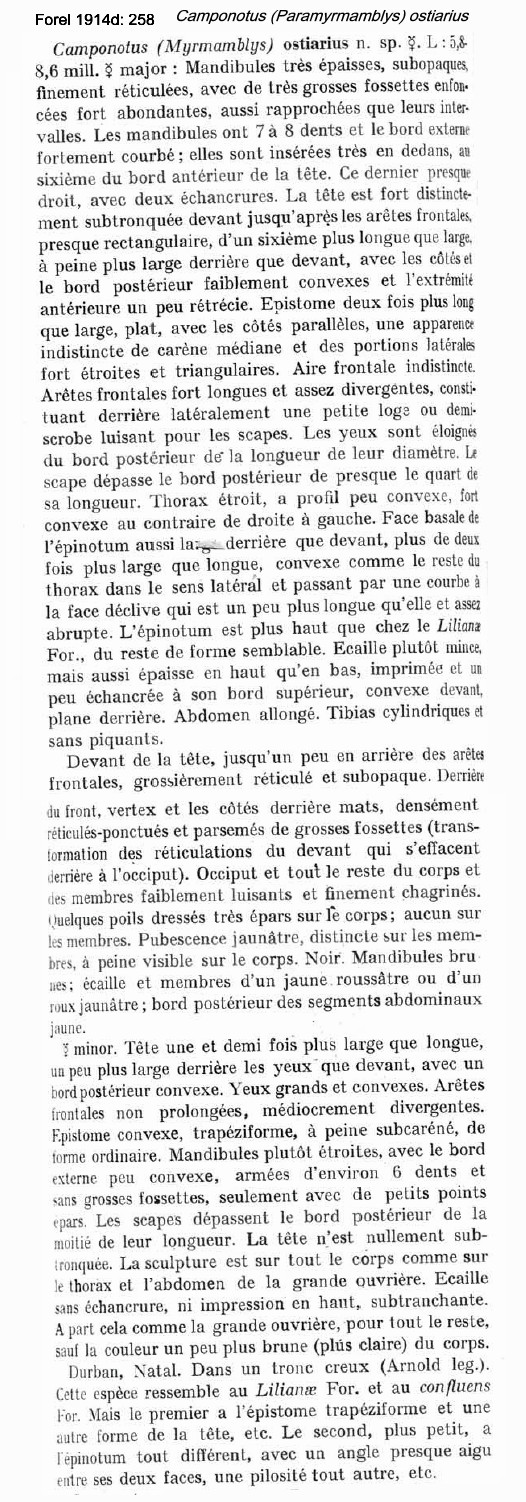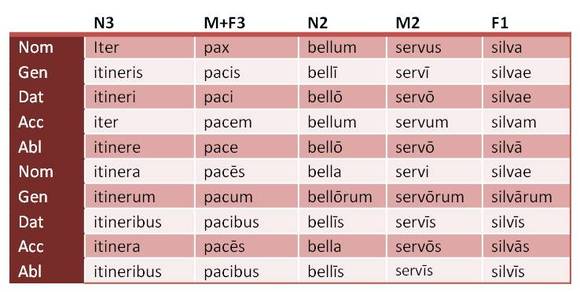

The porter was not a part of Holy Orders administering sacraments but simply a preparatory job on the way to the Major orders: subdiaconate, diaconate and the priesthood. Later on, the Porter would also guard, open and close the doors of the Sacristy, Baptistry and elsewhere in the church. The porter had in ancient times the duty of opening and closing the church-door and of guarding the church especially of ensuring no unbaptised persons would enter during the Eucharist. This was the first order a seminarian was admitted to after receiving the tonsure. An ostiarius, a Latin word sometimes anglicized as Ostiary but often literally translated as porter or doorman, originally was a servant or guard posted at the entrance of a building. Note The forms of the genitive of the personal pronouns are really the genitives of the possessives. nusquisque nostrum each one of us vestrum omnium of all of you. The forms nostrum, vestrum, etc., are used partitively. In the Roman Catholic Church, this "porter" became the lowest of the four minor orders prescribed by the Council of Trent. Note Old forms are genitive ms, ts accusative and ablative md, td (cf. Peter.įreebase Rate this definition: 0.0 / 0 votes 1 Found in older Latin (until the Augustan Age). Like the other minor orders and the subdiaconate, it is retained in societies such as the Priestly Fraternity of St. At what time of the day would caecilius go to the baths Click the card to flip. ostirius m ( genitive ostiri or ostir ) second declension porter, doorman Declension edit Second-declension noun.

The porter was not a part of holy orders administering sacraments but simply a preparatory job on the way to the major orders: subdiaconate (until its suppression, after the Second Vatican Council by Pope Paul VI), diaconate and the priesthood. A genitive can also serve purposes indicating other relationships. Later on, the porter would also guard, open and close the doors of the sacristy, baptistry and elsewhere in the church. In grammar, the genitive case (abbreviated gen) is the grammatical case that marks a word, usually a noun, as modifying another word, also usually a nounthus indicating an attributive relationship of one noun to the other noun. The porter had in ancient times the duty of opening and closing the church-door and of guarding the church, especially to ensure no unbaptised persons would enter during the Eucharist. This was the first order a seminarian was admitted to after receiving the tonsure. In the Roman Catholic Church, this "porter" became the lowest of the four minor orders prescribed by the Council of Trent. 3, 8, 5).Wikipedia Rate this definition: 0.0 / 0 votesĪn ostiarius, a Latin word sometimes anglicized as ostiary but often literally translated as porter or doorman, originally was a servant or guard posted at the entrance of a building.

III ostĭārĭum, ii, n., a tax upon doors, a door- tax: columnaria, ostiaria, frumentum, vecturae imperabantur, Caes. II ostĭāria, ae, f., a female doorkeeper, portress, Ambros. Its use was revived in the Renaissance when the new learning was written down in Latin and drew much on the work of Greek, Arabic and other non-Latin. 3.-In the Christian church, a sexton, Cod.

9, 22.-By the rich they were, in early times, occasionally chained up, Suet. I ostĭā-rĭus, ii, m., a door- keeper, porter (syn.: janitor, portitor), Varr. Sentence Type of Genitive Latin Translation Part of the city was burned in the fire. ostirius m ( genitive ostiri or ostir ) second declension porter, doorman Declension edit Second-declension noun. Put an X under type if the phrase does not use the genitive. I of or belonging to the door: ancilla, portress, Vulg. Exercises: Underline the word or phrase that would be in the genitive case in Latin, tell what type of genitive it is, and then translate the genitive and what it describes into Latin. Ostiarius ostiarius ostiarii N M :: porter, doorkeeper cleric of minor orders (lowest/fourth level from deacon) Ostiarius ostiarius ostiaria, ostiarium ADJ :: of/belonging to door


 0 kommentar(er)
0 kommentar(er)
